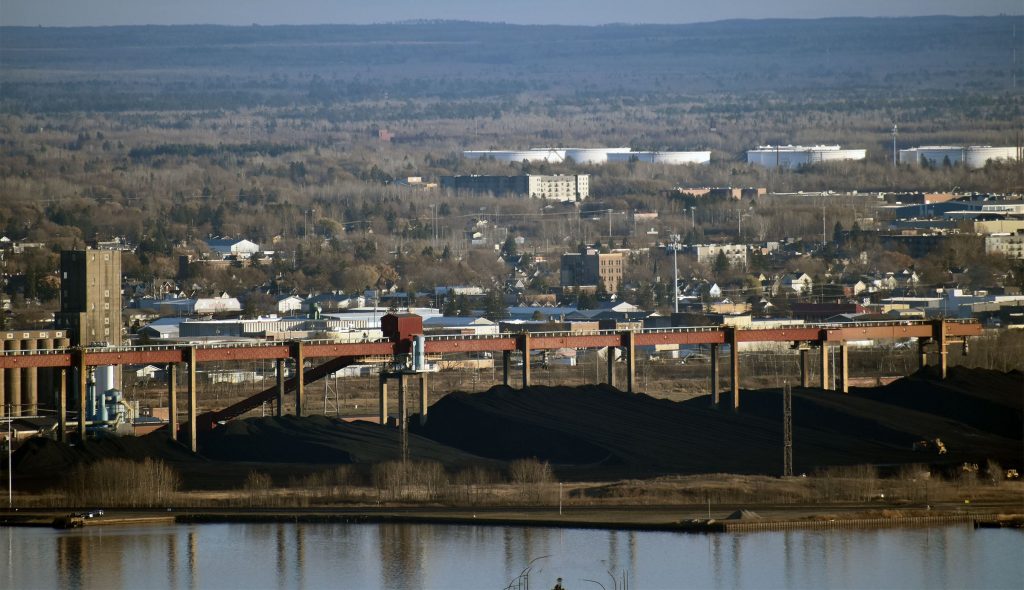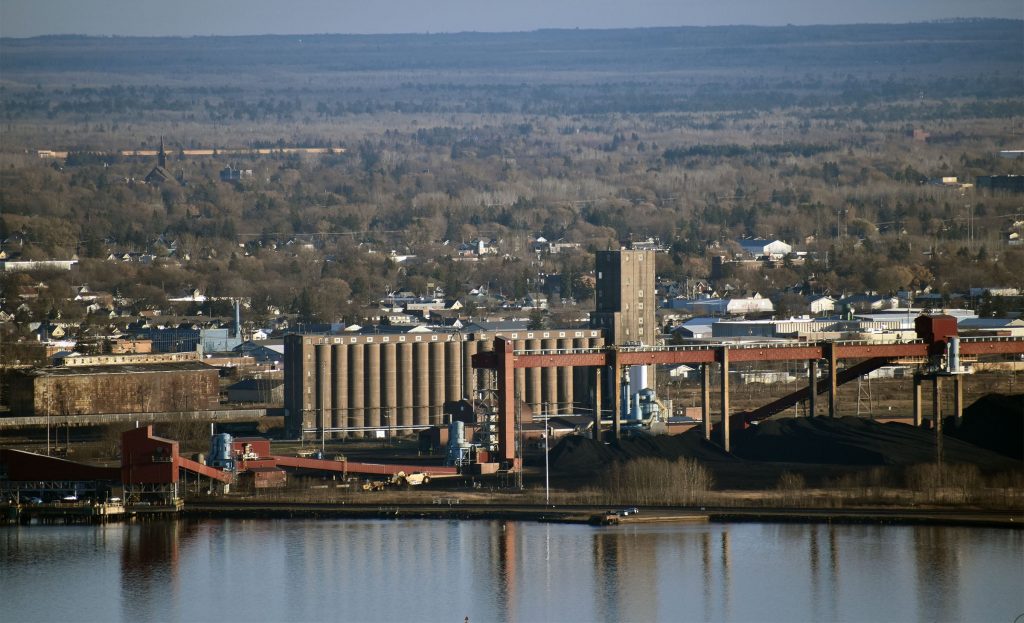Wisconsin Coal Terminal to Close After 50 Years
Superior company has seen 75% decline in coal cargo, as clean energy kills demand.

The Midwest Energy Resources Co. terminal in Superior is set to close when its lease ends next June. Danielle Kaeding/WPR
A decades-old coal terminal in Superior is set to close next year as coal shipments have dropped dramatically due to the clean energy transition.
Midwest Energy Resources Company, a subsidiary of DTE Electric Company, will not renew its 50-year lease with Koch Industries as of June 30 next year.
Brad Carroll, a spokesperson for DTE Energy, said in a statement that the company has been a valuable part of DTE’s operations for many years.
The closure will affect 56 employees. Carroll said they will have the opportunity to apply for other positions within DTE, formerly Detroit Edison.
The company’s terminal opened in 1976. It became one of the leading facilities that transfers coal from rail to ships on the Great Lakes, said Jayson Hron, a spokesperson for the Duluth Seaway Port Authority.
Hron said the facility set a record loading 22 million short tons of coal in 2008 or nearly half the total tonnage moving through the Port of Duluth-Superior. But coal tonnage has dropped 75 percent from its peak at the Superior terminal due to the shift away from coal-fired power plants.
In recent years, Hron said coal accounted for between 16 and 18 percent of all tonnage moved through the Port of Duluth-Superior. The port handled nearly 30 million tons of cargo last year.
“That’s obviously a significant slice of the overall float, and losing it would be a significant blow for the port,” Hron said. “With that said, the port moves a variety of energy-related cargo for the oil, gas and wind sectors, so high-value energy cargoes will continue moving through this port.”

The Midwest Energy Resources Co. terminal was first opened in 1976. It’s set to close in June of next year. Danielle Kaeding/WPR
The Superior terminal was created following requirements under the Clean Air Act to reduce sulfur dioxide and nitrogen oxide emissions from coal-fired power plants. One way major power companies did that was by obtaining low-sulfur coal from the Powder River Basin in Montana and Wyoming, said Daniel Rust, professor of transportation and logistics management at the University of Wisconsin-Superior.
“The bottom line is that the demand simply isn’t there for the coal coming through this terminal anymore,” Rust said. “As the lease is coming due, there just isn’t a business case to continue moving coal through there.”
For more than 150 years, coal has been part of the cargo handled at the Port of Duluth-Superior. Hron said as many as 20 coal docks operated in the Twin Ports during the early 1900s, and he said the port authority will continue to bring in more business.
Rust said the closure comes on the heels of the CHS grain terminal ending operation after almost a century of doing business at the port. In 2022, grain shipments had reached their lowest level since 1890.
Rust said there’s hope another entity will lease the Superior coal terminal.
“It’s a world-class facility,” Rust said. “I already think someone else will pick it up.”
Wisconsin coal terminal to close after 50 years as clean energy saps demand was originally published by Wisconsin Public Radio.
If you think stories like this are important, become a member of Urban Milwaukee and help support real, independent journalism. Plus you get some cool added benefits.





















